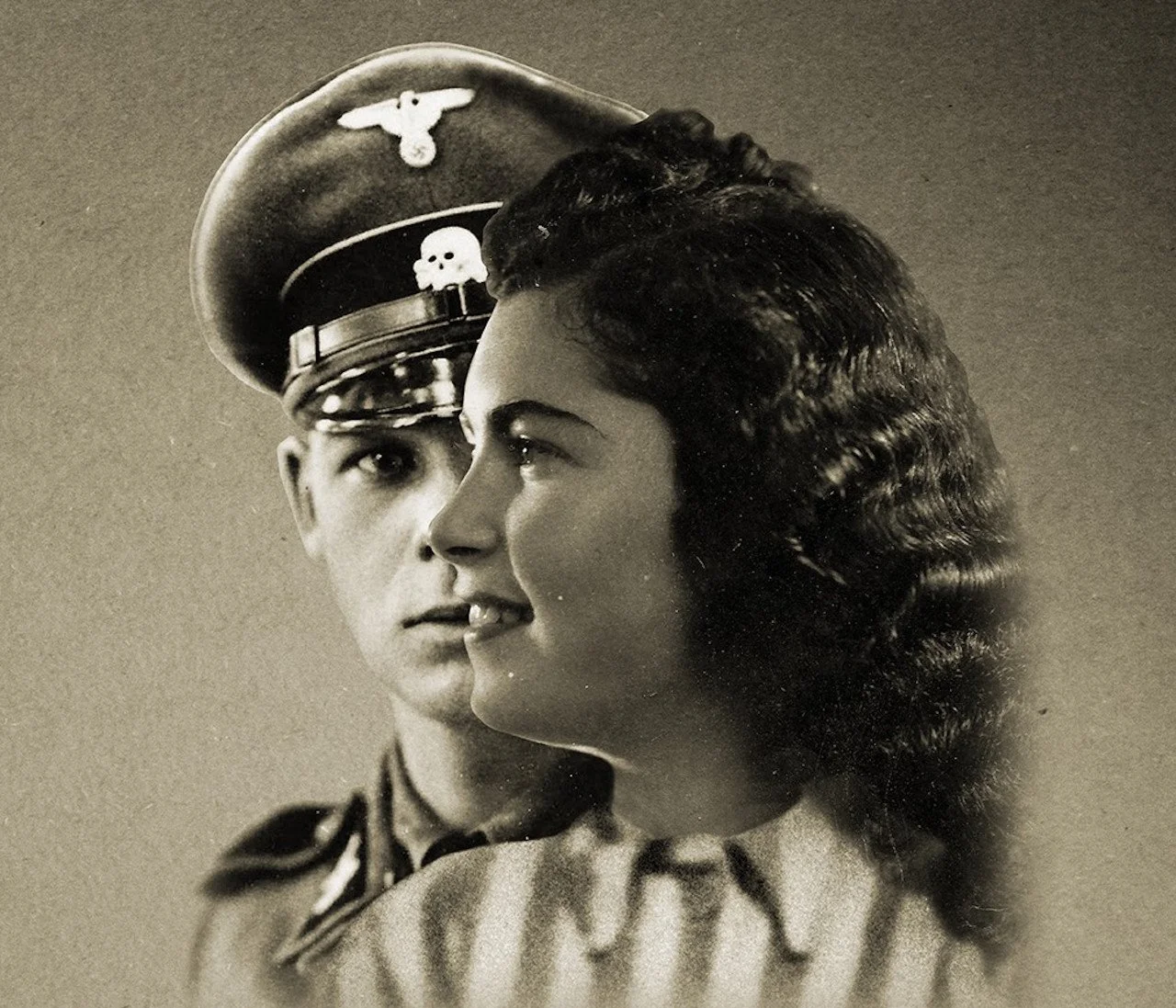Love It Was Not: An Auschwitz Inmate and the SS Guard Who Loved Her
By Liam Lacey
Rating: B
In the uncomfortable documentary Love It Was Not, Israeli director Maya Sarfaty follows the relationship between an Austrian SS officer, Franz Wunsch who was infatuated with an Auschwitz-Birkenau inmate, Helena Citron, who met when they were both around 20.
Though it sounds crude to say it, Sarfaty has found an intimate hook to an almost unapproachably grim subject. The camp at Auschwitz-Birkenau — where 85 percent of the 1.3 million inmates were murdered — is often thought of as a black hole, beyond illumination or interpretation. A young love story puts us all on familiar ground, even if, as the title suggests, that’s hardly the right description of an arrangement where one party can only agree to the terms or die.
The story of the relationship between Citron and her guard has been explored before — she was interviewed in a 2005 PBS documentary series, Inside the Third Reich — and it has also inspired a recent Thai opera. For the most part, Sarfaty, who developed the story from her own short, succeeds in taking us to difficult places without prurience or sentimentality. At times, though, her over-crafty efforts to find a fresh way of presenting the material can rankle.
As the film opens, three people, a middle-aged man and two women, are successively shown an unfamiliar photograph an attractive, well-fed, smiling young woman in a prison uniform. Each of them, speaking in Hebrew, recognizes her but expresses surprise that she does not look like an Auschwitz inmate.
Later, we learn that two of the subjects are Helena’s son and daughter and the other is her niece.
In that same post-War generation, we hear from Franz’s daughter, Magda, who describes how it made her uncomfortable that her father wore a locket with photographs of himself and a strange woman. He was so obsessed with that photograph that he reproduced many times, often cutting out the head or body of Helena and placing her, sometimes with him, in more pleasant settings and in different clothes. Taking his fetish as an inspiration, the filmmaker also photo-montages Helena’s head in archival photographs of Auschwitz inmates.
These doctored photographs are used to illustrate eyewitness testimonies, which are the heart of the film. Sarfaty searched through the archives of Israel’s Yad Vashem and Steven Spielberg’s Shoah Foundation to glean references to Franz and Helena’s relationship.
She then located and interviewed several women who worked with Helena in Auschwitz in the Kanada (Canada) warehouse where gas chamber victims’ belongings were sorted. Named after the country thought of as a land of riches, Canada was a place where food and valuables could be pilfered. The women who worked there have vivid recollections of Helena’s special status, which they responded to with a range of reactions from compassion to envy.
PROUDLY SUPPORTS ORIGINAL-CIN
Their stories are juxtaposed against an interview with the elderly but still glamorous Helena, who describes how she was despised and sometime beaten by other inmates because of her special relationship. We also hear from Helena’s sister Roza, and even an apparent home video of Franz himself. In a late reveal, we learn that the last three subjects died in the first decade of the 2000s, and what we had watched are archival interviews.
Helena was one of the first 1,000 women from Slovakia who were shipped to Poland in 1942, a talented singer who had dreams of a show business career. When she was forced to perform at a birthday party for an SS officer, Franz first approached her, and asked her to sing the song again.
She recalls “I hear the word ‘please.’ I look up with tears in my eyes and I see a uniform and I think, ‘God where are the eyes of a murderer? These are the eyes of a human being.’”
Though he put himself at risk on her behalf, Wunsch was known to be sadistic with male prisoners. Helena says she used her influence over him to save many other prisoners from the gas chamber. That included a last-minute rescue of older sister Roza, who arrived in Auschwitz in 1944. But while Wunsch saved the mother’s life, her two children, a six-year-old girl and an infant boy, were murdered.
Following the war, Wunsch tried numerous times to find Helena, writing letters that were unanswered. She moved to Israel, married, and had children, where she lived in fear of being accused of being a collaborator, and according to her children, was given to violent outbursts.
She saw Wunsch again in 1972 when they were both around 50 when she was invited to Vienna to testify at his trial for war crimes, speaking, we are told, without making any eye contact, where she attempted to tell the complicated but obvious truth that murderers are also human beings.
Love It Was Not. Directed and written by Maya Sarfaty. With Helena Citron, Roza Citron, Franz Wunsch, Israel Tehori, Billie Beziman Tihori and Miki Marin. Now available online or in person at the Hot Docs Ted Rogers Cinema.



